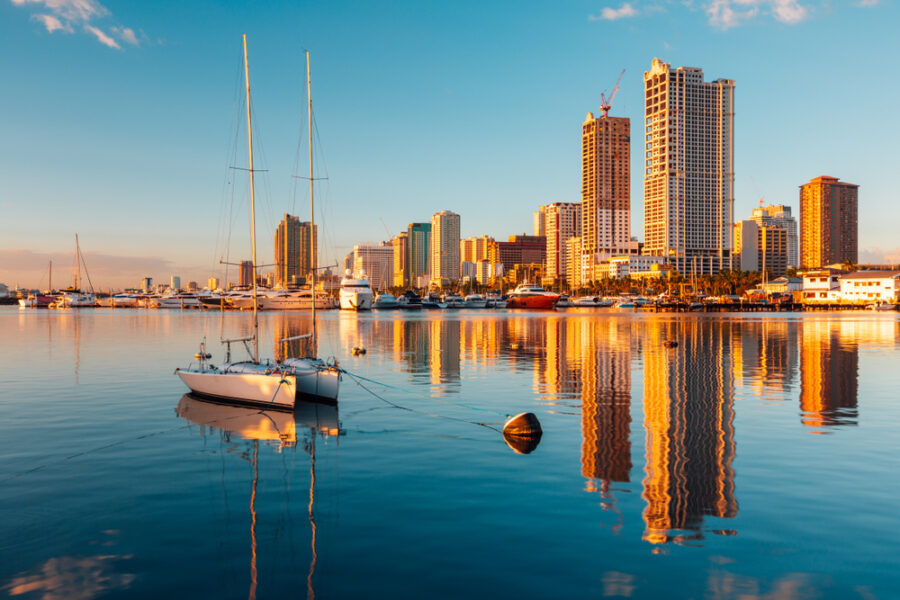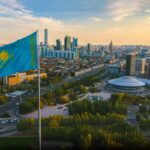Philippine cybercrime investigators identify 30 influencers promoting illegal online gambling

The Philippine Cybercrime Investigation and Coordinating Center has given the Philippine National Police Anti-Cybercrime Group a list of influencers accused of promoting illegal online gambling.
According to GMA News Online, Cybercrime Investigation and Coordinating Center Chief Undersecretary Renato ‘Aboy’ Paraiso told a briefing in Quezon City that the agency’s threat monitoring team, along with advocacy group Digital Pinoys, had identified 30 influencers posting promotional content for unlicensed gambling sites.
The top 15 accounts had follower counts ranging from 1.1 million to 9.2 million.
Paraiso said the agency would request that influencers’ online pages are taken down and a case is built against them. He added that the individuals had been given a chance to delete their content but did not comply.
Possible charges include violations of the Cybercrime Prevention Act of 2012, Presidential Decree No. 1602, and Article 315 of the Revised Penal Code. Paraiso said further inquiry could point to a “grand conspiracy” or a large-scale fraud.
Digital Pinoys national campaigner Ronald Gustilo said the group would provide new monitoring technology. “This can easily detect illegal gambling sites,” he said.
Last week, the Gangwon Provincial Police Agency arrested 14 individuals on charges of operating an illegal online gambling network.
Abi Bray brings strong researching skills to the forefront of all of her writing, whether it’s the newest slots, industry trends or the ever changing legislation across the U.S, Asia and Australia, she maintains a keen eye for detail and a passion for reporting.
Verticals:
Sectors:
Topics:
Dig Deeper
The Backstory
Why the crackdown on promotions is accelerating
Authorities across multiple markets have stepped up actions against the online gambling gray market, and enforcement is increasingly focusing on who promotes illicit platforms as much as who runs them. The trend has been building for months as regulators warn that influencer marketing, media buys and sponsorships have become efficient entry points for offshore operators that sidestep licensing and player-protection rules. The latest Philippine move to single out social media personalities sits within a wider regional and global campaign that targets the advertising pipelines feeding illegal sites, not just the sites themselves.
Regulators say this shift is necessary because illicit operators adapt faster than traditional blocks and domain takedowns. They also cite the outsized reach of top creators and media outlets compared to the enforcement agencies policing the sector. It is prompting new legal theories, tighter industry guidance and the use of technology to detect and deter promotions before they scale.
Regulators turn to technology and partnerships
In the Philippines, the policy environment has tilted toward tech-driven monitoring and interagency coordination. The national gambling regulator signaled a more proactive posture with PAGCOR’s plan to deploy an AI tool that flags illegal sites at rapid speed. The tool is part of a broader strategy that includes behavioral analytics, fraud prevention and a 24/7 helpline to mitigate harm. PAGCOR also underscored coordination with the Cyber Crime Commission, the National Telecommunications Commission and industry standards bodies to align enforcement and consumer protection.
These moves speak to a recognition that blocking domains alone cannot keep pace with offshore networks. By building detection into the front end of the advertising and content ecosystem, regulators can identify suspect promotions, notify platforms and creators, and refer cases. The emphasis on collaboration also suggests enforcement will touch multiple points of the value chain, from payment intermediaries to ad networks to social channels.
Influencer marketing under legal fire from Almaty to Manila
Kazakhstan offers a clear example of how quickly the legal stakes are rising for content creators. Kazakhstan’s Financial Monitoring Agency moved to penalize influencers beyond fines, arguing that administrative penalties have not deterred repeat offenders. Authorities blocked more than 17,000 links to online platforms and detained dozens of bloggers this year, yet only a fraction paid fines that regulators say are dwarfed by promotional revenues. The agency is testing whether promotion can be treated as aiding and abetting illegal gambling, exposing influencers to criminal liability. Lawmakers also tightened rules in 2024 to ban the promotion of online casinos, sportsbooks and betting pools across media and public spaces, and officials report hundreds of shutdowns and charges since.
The push in Kazakhstan mirrors pressure points seen elsewhere: offshore operators continue to access domestic users via social promotions and influencer deals even as domains are blocked. By escalating penalties and clarifying that promotion itself may constitute a crime, regulators aim to shrink the incentive for creators to accept these ads or affiliate partnerships.
Media and marquee brands face new liability tests
Scrutiny is not limited to creators. Traditional publishers and high-profile events are facing compliance demands. In Canada, Ontario’s gambling regulator urged media to drop ads from offshore operator Bodog, calling on outlets to refuse campaigns from unregistered brands that do not meet the province’s player-protection standards. The Alcohol and Gaming Commission of Ontario framed the appeal as a public-safety duty and a market-integrity issue, signaling that media firms have a role in upholding the legal market’s rules and that accepting ads from unregulated operators carries reputational and regulatory risk.
Thailand shows how sponsorships can create exposure for organizers and partners. Thai police opened a probe into Miss Universe promotions tied to alleged online casinos after contestants appeared with branding thought to be linked to a gambling operator. Pageant organizers distanced themselves, but the investigation underscores how brand placements and endorsements can trigger legal questions even when organizers do not directly control every touchpoint. For global events and sponsors, the episode is a caution that cross-border campaigns must be aligned with local law, especially in jurisdictions where online gambling remains illegal.
The combined message for media owners and brand stewards is that regulators expect active gatekeeping. Accepting ad dollars from offshore firms, or allowing implicit placement through influencer tie-ins, can put companies on the wrong side of evolving advertising standards and penalties.
Enforcement after the POGO pivot raises the stakes
The Philippines’ enforcement environment has tightened since the government moved to dismantle Philippine Offshore Gaming Operators, or POGOs, last year. That pivot continues to ripple through the market. This month, the Bureau of Immigration arrested seven South Koreans in Clark for alleged online betting operations following the POGO ban. Officials said the group appeared to run small-scale operations masked as legitimate businesses. The arrests illustrate how, even as authorities target the promotional layer, they are also pursuing operators who try to persist in the shadows of closed hubs.
The twin track—pressure on advertisers and promoters alongside raids on residual operators—aims to compress the gray market from both supply and demand angles. If creators and media platforms are less willing to take the money and if workstations and payment rails are disrupted, offshore operators face higher costs to reach users and process bets. That, in turn, may push more activity into the regulated system that PAGCOR says it is strengthening with tech tools and responsible gambling measures.
What to watch next
Three developments could shape the next phase. First, if Philippine authorities bring test cases against high-follower influencers, courts will set precedents on how existing cybercrime, fraud and gambling laws apply to promotional content. Second, Kazakhstan’s effort to treat promotion as aiding and abetting bears watching. A criminal standard for creators could spread to neighboring markets grappling with offshore leakage. Third, Ontario’s media appeal may foreshadow formal guidance or penalties if publishers ignore warnings and continue to run offshore ads.
For platforms and talent agencies, the compliance bar is rising. Due diligence on advertisers, vetting of affiliate links, and geofenced campaign settings will be critical. For regulators, the balance will be in pairing tougher enforcement with viable legal alternatives and consumer safeguards. The direction of travel is clear: the promotional pipes that fuel the illicit market are no longer off-limits, and accountability is moving upstream.







